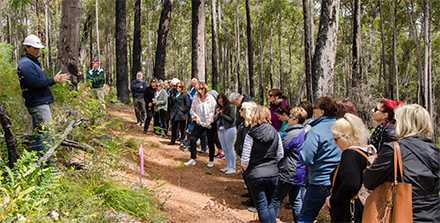Regional polling results have revealed that more than 80% of South West voters want the WA Government to do more to support and grow local timber industry jobs and decrease a reliance on timber imports. Source: Timberbiz
The uComms poll, conducted during mid-January 2021, surveyed more than 2200 voters across the electorates of Collie-Preston, Bunbury, Warren-Blackwood, Albany and Murray-Wellington.
These electorates have existing businesses and employees relying on or utilising the forestry and timber industry.
Across the five electorates, results also showed that on average:
- 8 out of 10 voters surveyed believe forestry and timber processing is very important or somewhat important to regional WA.
- The majority of voters surveyed would be more likely to support a political party or candidate with policies in support of WA’s local forestry and timber processing industry.
- An average of 69% of voters surveyed believe the WA timber industry is a sustainable and renewable industry, with more than 75% and 78% of voters in Bunbury and Albany in agreeance.
Forest Industries Federation WA (FIFWA) Executive Director Melissa Haslam said the results reflected strong support for WA’s forest industries.
WA’s forestry industry contributes $1.4 billion to the WA economy annually and supports about 6000 jobs, with more than 90% of those jobs located in regional communities.
“These results send a clear message to all parties and candidates in the upcoming State election, these regional communities want Government to support and grow our industry,” Mrs Haslam said.
FIFWA created an eight-point strategic plan to assist the State government in creating greater resource security and a policy environment to generate new investment within the industry.
“We are calling for a commitment to the industry and its future,” Mrs Haslam said.
“The pine plantation estate is in a rapid state of decline, decimated further by recent bushfires. If we do not maintain our plantation estate, we will not be able to maintain the associated domestic processing.
“Overwhelmingly voters have told us they do not want to increase our reliance on timber imports, to avoid this we need to create greater resource security in both the native and plantation sectors of the industry. We believe our policy document contains the answers to achieve this and in doing so, will increase economic output and create more local jobs.”
Mrs Haslam said FIFWA was keenly awaiting the results of the State government’s Market-Led proposals initiative, which supports a 50,000-hectare expansion of softwood plantations over 10 years, but further to that, would like to see the development of an industry-guided State Plantations Policy.
“An industry-guided State Plantations Policy is needed to provide consistency in planning processes, for both plantation development and expansion,” she said.
“There are so many economic, environmental and community benefits generated from plantations, a State Plantations Policy would go a long way towards publicly recognising and supporting those benefits.”








